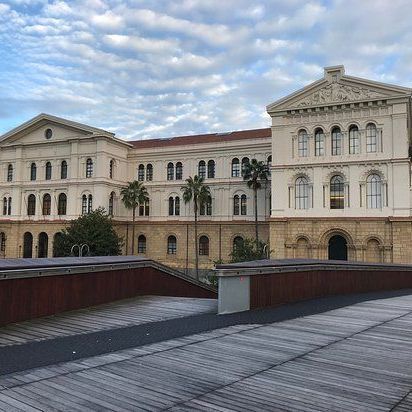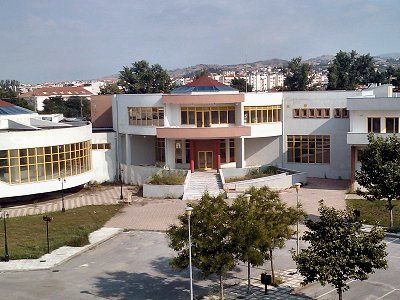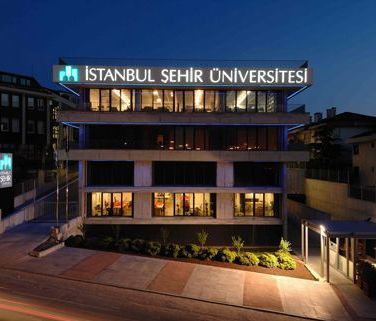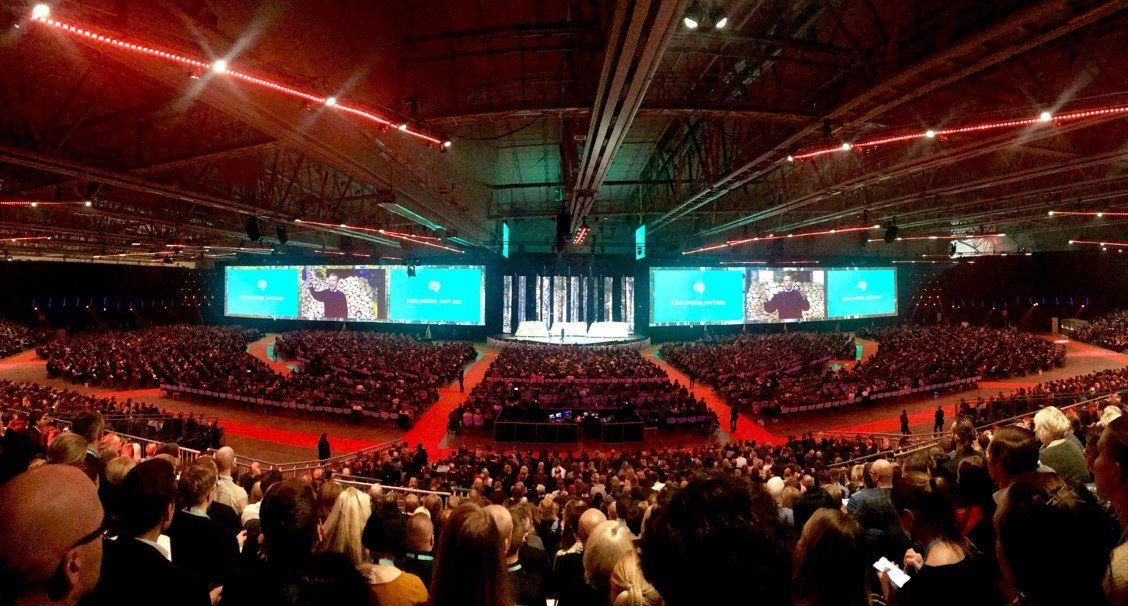By Lāsma Lubāne
•
December 12, 2022
Every semester several students around Europe leave their comfort zone and apply for ERASMUS+ mobility. This is an opportunity to go study abroad at one of the participating universities at the expense of the European Union. The students of VUAS are no exception and applications for ERASMUS + mobility for the spring semester are currently being actively accepted. This experience helps students to expand their horizons, gain new knowledge and make friends. Anna (who spent her ERASMUS + in Portugal) does not deny that this experience has definitely positively influenced her life. "My name is Anna, I am a 3rd-year bachelor's student in the programme “Intercultural Communication”. I believe that my semester spent in Portugal at the Polytechnic University of Porto is an added value that could have only been obtained during the ERASMUS+ mobility. I decided to apply for ERASMUS + when I received the first email about this opportunity. I only applied for the 2nd semester of my 2nd year of university, because the situation with COVID-19 disrupted my plans, and also before leaving, I actually wanted to attend my studies in person at VUAS. I chose the university in Porto because I wanted to get to know a culture that is unfamiliar to me, and, of course, I wanted to be at a place that was warmer than in Latvia. Apart from geographical reasons, on their website Porto also offered more suitable courses that aligned with my interests and curriculum. I remember talking to friends who had already been on ERASMUS +, and a common phrase was: "it's hard to deal with the paperwork, but otherwise - there are no problems." After a bit of stress at the beginning regarding the documentation and after the support from my friends who had already been on ERASMUS+, I submitted the documents to my program director for approval, and later also to the university's ERASMUS+ coordinator. Then tickets, and insurance, and - you can start the ERASMUS+! In contrast to the joy I just expressed, I can honestly say that for the first few days I did not leave the room at all. The stress level was high. I was afraid to communicate, afraid to show my face or be close to anyone. While the students with whom I lived in the same house were having fun, at that time I was in my room panicking. However, when I finally decided to leave my comfort zone and went to Spain on my first weekend with people I had only spoken to once, my stress was replaced by full commitment and the ability to use all the offered opportunities . After the first week of ERASMUS+ adventures - studies in Portugal began. Studies were in person but it was necessary to use face masks. And, by the way, masks in Portugal were mandatory for a longer time than in Latvia. Even when I left Porto in July, I had to wear a mask on public transport. Anyhow, studies were in person and the examination process differed from the one in Latvia. There were 2 types of study process you could choose from - the "Continuous assessment", where you accumulate points for the final assessment by actively participating during classes, and by passing several tests during the year. Or the "Final Assessment" which takes into account the final grade of the exam. This applies more to local students since many students also work, and in that way, they can work according to a schedule that is suitable. The studies themselves were very exciting and with a personal approach, and the lecturers were very friendly if you consult with them in time, because I often received email responses within 3-5 work days. Thanks to my new friends, I did not go crazy, because with their help we also made the perfect travel schedule for ourselves. A group of ERASMUS + students quickly formed also known as my internal support system in all matters, events and travels. It consisted of Poles, Slovaks, Brazilians, Spaniards, and Czechs and it grew bigger as time went by. We traveled to the north of Spain, throughout Portugal, and I managed to fly to Italy and visit my friends there as well. Looking back, it's strange to see how much has happened in just six months. Of course, I also changed as a person and changed my views on life. If a person claims that they have returned from ERASMUS + the same as they were before, then they have not noticed them yet. ERASMUS + not only expands one's horizons, but also the circle of friends, and the possibilities of studying or working abroad. ERASMUS + is "addictive". There's a reason why there is a whole ERASMUS + community with the slogan: "ERASMUS addicted", because once you try, you will not be able stop taking advantage of these opportunities, and if you have not tried, you will not know how it is. Of course, not everyone can leave home for six months, however it is definitely worth meeting people who inspire you and who make you understand that you are not weird, you just had not met “your people '' yet. And it's well worth it. I believe you have the strength to study, travel, and just be abroad, while receiving financial support from European funds. It is a 10/10 experience, if I could, I would repeat it every year.








